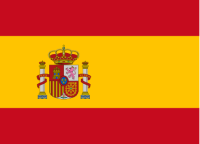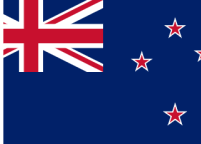- Teaching Career in NZ
- Teaching Course in NZ
- Registration as a Teacher
- Understanding the NZ Teaching Council – Role and Functions
- Teaching Council of Aotearoa New Zealand (Fees and Levies) Notice 2022
- Overseas Trained Teacher in New Zealand
- Types of Visas Available for International Teaching Students
- Success Stories and Case Studies: International Students’ Success in NZ Teaching
Introduction
New Zealand offers a unique and rewarding environment for teachers. Known for its high education standards, diverse cultural landscape, and exceptional quality of life, New Zealand attracts many educators and aspiring teachers worldwide.New Zealand has 105,000 registered teachers. It comprises various ethnic groups: European -72%, Maoro -12%, Asian – 5%, and Asia Pacific – 4%. Teaching in New Zealand presents an opportunity to engage with innovative educational practices, a supportive community, and a focus on holistic development.1. Teaching Career in NZ

A. Market Overview
- Demand for Teachers: A consistent demand for skilled teachers, especially in Mathematics, Science, and Technology. Rural areas and regions outside the main cities often have higher demand.
- Salaries: Starting salaries for new teachers range from NZD 48,000 to NZD 52,000 annually, with experienced teachers earning up to NZD 80,000 or more.
- Professional Development: New Zealand strongly emphasizes continuing professional development, offering various workshops, in-service training, and opportunities for career advancement.
B. Working Conditions
- Contract Types: Includes full-time, part-time, and relief (substitute) teaching roles.
- Teaching Hours: Teachers typically work around 40 hours per week, with actual teaching hours ranging from 20 to 25.
- Holidays: Teachers enjoy substantial holiday periods coinciding with school holidays.
C. Cultural Diversity
- Emphasis on bicultural education, respecting the Treaty of Waitangi and incorporating Māori culture and language in teaching.
2. Teaching Course in NZ
 Enrolling in accredited initial teacher education (ITE) programs will guide you towards attaining a teaching credential. Once you obtain this qualification, you will be eligible to teach in various educational settings in New Zealand, including early childhood education centres, primary and secondary schools, and Māori medium or immersion kura. Your ITE program will comprehensively equip you for your teaching career by combining curriculum studies, pedagogical theory, professional development, practical teaching experiences, and cultural studies.Ensure you are studying an approved programme the Teaching Council recognises for registration.When you complete your ITE qualification, you can apply to the Teaching Council for registration and a practising certificate.
Enrolling in accredited initial teacher education (ITE) programs will guide you towards attaining a teaching credential. Once you obtain this qualification, you will be eligible to teach in various educational settings in New Zealand, including early childhood education centres, primary and secondary schools, and Māori medium or immersion kura. Your ITE program will comprehensively equip you for your teaching career by combining curriculum studies, pedagogical theory, professional development, practical teaching experiences, and cultural studies.Ensure you are studying an approved programme the Teaching Council recognises for registration.When you complete your ITE qualification, you can apply to the Teaching Council for registration and a practising certificate.A. Types of Courses
- Bachelor of Education (BEd): A typical pathway for aspiring primary school teachers.
- Graduate Diploma in Teaching: For those with a bachelor’s degree in another field.
- Master of Teaching and Learning: An advanced course for high-level professional practice.
B. Specializations
- Early Childhood Education: Focuses on teaching children up to the age of 5.
- Primary Education: For teaching at primary school levels (ages 5-12).
- Secondary Education: Specializing in one or two subjects for secondary schools (ages 13-18).
C. Course Duration and Costs
- Undergraduate degrees typically take 3-4 years, while graduate diplomas and master’s degrees can take 1-2 years.
- Tuition fees vary but generally range from NZD 20,000 to NZD 35,000 annually for international students.
D. Practical Components & Accreditation
- Most teaching courses in New Zealand include a significant practical component involving placements in schools under the supervision of experienced teachers.
- All teaching courses need to be approved by the Teaching Council of New Zealand to ensure they meet national standards for teacher education.
3. Registration as a Teacher
 Commencing a career in the teaching field in New Zealand requires registration. This registration remains valid indefinitely unless you voluntarily opt to de-register or revoke your registration.Registration is evidence of your qualifications, competence, and suitability for teaching, among other prerequisites. It’s important to note that registration alone does not grant you the legal authority to practice as a teacher; you must additionally hold a current practising certificate.The online Register of New Zealand Registered Teachers publicly showcases all registered educators and the current status of their practising certificates.
Commencing a career in the teaching field in New Zealand requires registration. This registration remains valid indefinitely unless you voluntarily opt to de-register or revoke your registration.Registration is evidence of your qualifications, competence, and suitability for teaching, among other prerequisites. It’s important to note that registration alone does not grant you the legal authority to practice as a teacher; you must additionally hold a current practising certificate.The online Register of New Zealand Registered Teachers publicly showcases all registered educators and the current status of their practising certificates. A. Practising as a teacher
In New Zealand, registered educators must possess a valid practising certificate to be eligible for employment in teaching roles. This certificate proves that you have maintained satisfactory recent teaching experience, engaged in professional development, and met the necessary criteria to work as a teacher, among other qualifications. Practising certificates have a three-year validity period and require regular renewal. Significantly, they are not restricted to any specific educational sector.If you plan to postpone your teaching career, you can apply solely for registration initially. Alternatively, when you are prepared to commence teaching, you can choose to apply for both registration and a Tōmua | Provisional Practising Certificate simultaneously.Types of Practising Certificates- Tiwhikete Whakaakoranga Tōmua | Provisional Practising Certificate:
- For new and beginning teachers from New Zealand and overseas-trained teachers seeking registration in New Zealand.
- Tiwhikete Whakaakoranga Tūturu | Full Practising Certificate (Category One):
- For experienced teachers, she was endorsed as meeting the Standards for the Teaching Profession | Ngā Paerewa.
- Tiwhikete Whakaakoranga Pūmau | Full Practising Certificate (Category Two):
- For experienced teachers who are not endorsed as meeting all Standards | Ngā Paerewa but are likely to meet them.
- Returning to Teaching in Aotearoa New Zealand Practising Certificate:
- For experienced New Zealand registered teachers who last taught in the past five years.
- Tūranga Whakaako Whai-herenga | Limited Authority to Teach (LAT):
- Not a practising certificate; for individuals without a teaching qualification to teach in specialist or in-demand areas.
B. Practising Certificate and Authority to Teach Names (Changes in 2019)
- Old Name → New Name:
- Teacher Registration → Kaiako Whai Rēhitanga | Teacher Registration
- Provisional Practising Certificate → Tiwhikete Whakaakoranga Tōmua | Provisional Practising Certificate
- Full Practising Certificate → Tiwhikete Whakaakoranga Tūturu | Full Practising Certificate (Category One)
- Subject to Confirmation Practising Certificate → Tiwhikete Whakaakoranga Pūmau | Full Practising Certificate (Category Two)
- New: Returning to Teaching in Aotearoa, New Zealand Practising Certificate
- Limited Authority to Teach → Tūranga Whakaako Whai-herenga | Limited Authority to Teach
C. Requirements for Becoming a Registered Teacher in New Zealand
- A. Satisfactorily Trained to Teach – New Zealand Qualifications
- Requirement: Hold an approved New Zealand Initial Teacher Education (ITE) qualification (level 7 or above).
- Evidence:
- Certified copy of your approved New Zealand ITE qualification OR
- A link for the Council to access your ITE qualification details on eQuals OR
- Formal written confirmation from your New Zealand ITE provider confirming completion of your ITE programme.
- For More Information: See ‘Satisfactorily Trained to Teach: Detailed Requirements’.
- Requirement: Satisfactorily trained with overseas qualifications.
- Evidence:
- Certified copy of your overseas education qualification(s) on the pre-approved list OR
- Please provide a certified copy of your NZQA International Qualifications Assessment (IQA) showing its comparability to a New Zealand ITE qualification.
- For More Information: See ‘Satisfactorily Trained to Teach: Detailed Requirements’.
- C. Commitment to the Code of Professional Responsibility | Ngā Tikanga Matatika
- Requirement: Committed to the expectations in the Code | Ngā Tikanga Matatika.
- Evidence:
- A declaration of commitment to the values and expectations in the Code, AND
- A declaration about any investigations that might impact your teaching or ability to meet the Code’s requirements.
- For More Information, Contact the Teaching Council of Aotearoa, New Zealand.
- D. Character and Fitness
- Satisfactory Police Vet (Three-Yearly Requirement)
- Requirement: Have a satisfactory New Zealand Police vet.
- Evidence:
- Consent for the Council to apply for your New Zealand police vet AND
- Confirmation of verified identity documents provided to your identity referee.
- Proof of Identity for Overseas Police Vets
- Requirement: Satisfactory overseas police vets (where applicable).
- Evidence:
- Police vets from the national police service of any country you’ve lived in for 12 months or more in the past ten years OR
- A statutory declaration if unable to obtain a police vet.
- Satisfactory Police Vet (Three-Yearly Requirement)
- E. Fit to Be a Teacher
- Requirement: Physically and mentally able to carry out a teaching role safely and satisfactorily.
- Evidence:
- A declaration of no condition affecting the ability to teach safely and satisfactorily AND
- Additional evidence (e.g., medical certificate) if required.
- F.Language Competency
- Able to Communicate Competently in English and Te Reo Māori
- Requirement: Competence in English and te reo Māori.
- Evidence: As listed in the Council’s language competency policy.
- Commitment to Develop and Practice Te Reo Me Ngā Tikanga Māori
- Requirement: Commitment to develop and practice te reo me ngā tikanga Māori throughout my teaching career.
- Evidence: A declaration of commitment.
- Able to Communicate Competently in English and Te Reo Māori
- Standards for the Teaching Profession | Ngā Paerewa mō te Umanga Whakaakoranga
- Contact the Teaching Council of Aotearoa, New Zealand, for more details.
4. Understanding the NZ Teaching Council – Role and Functions
 The Teaching Council of Aotearoa, New Zealand, ensures safe, high-quality leadership, teaching, and learning for children and young people. It provides teachers are competent, fit to practice, and accountable. Funded by fees and levies from registered teachers, the Council is more than a regulatory body, playing a crucial role in the education system.Key Responsibilities and Functions (as per Education and Training Act 2020):
The Teaching Council of Aotearoa, New Zealand, ensures safe, high-quality leadership, teaching, and learning for children and young people. It provides teachers are competent, fit to practice, and accountable. Funded by fees and levies from registered teachers, the Council is more than a regulatory body, playing a crucial role in the education system.Key Responsibilities and Functions (as per Education and Training Act 2020):- Providing direction and enhancing the status of teachers.
- We identify and disseminate best teaching practices, fostering professional development in response to societal and technological changes.
- She oversees teacher registration, establishing and maintaining registration criteria and standards for qualifying teacher education.
- We are approving teacher education programmes in conjunction with quality assurance agencies.
- We are establishing standards for ongoing practice and criteria for issuing practising certificates.
- We are developing and upholding a set of ethical guidelines for educators.
- We are monitoring and enforcing mandatory reporting requirements.
- We are conducting disciplinary actions related to teacher misconduct and convictions.
- It is setting criteria for reporting severe misconduct and competence issues.
- I am coordinating a system for police vetting of all teachers.
- The Council verifies teachers’ qualifications, experience, police vet, and adherence to professional standards.
- Registration and a practising certificate signify a teacher’s qualification to educate children and young people.
- The Council maintains the Code of Professional Responsibility and Standards for the Teaching Profession.
- It reviews teacher training programmes and advocates for leadership through the Leadership Strategy.
- The Council voices teachers’ concerns on significant issues and influences legislation and policy.
- Investigates reports and complaints regarding misconduct or competence issues.
- Supports teachers in rehabilitation, imposes conditions on practising certificates, or refers to the Disciplinary Tribunal as necessary.
- The Council’s mandatory functions, as outlined in Section 479(1) of the Education & Training Act 2019, are funded by teacher fees and levies, which are set based on actual and reasonable costs.
- Costs are independently assessed and follow Treasury guidelines.
- Fees and levies are reviewed every three years, with adjustments for over or under-recoveries.
- The government funds optional functions related to leadership (Section 479(2)), not teacher fees.
5. Teaching Council of Aotearoa New Zealand (Fees and Levies) Notice 2022
 The Teaching Council of Aotearoa, New Zealand, under the Education and Training Act 2020, has established a framework for fees and levies applicable to teachers and teaching applicants. This framework is crucial for the proper functioning of the Council. It ensures the maintenance of high standards in the teaching profession. Here’s a simplified overview of the key points from this legislation:
The Teaching Council of Aotearoa, New Zealand, under the Education and Training Act 2020, has established a framework for fees and levies applicable to teachers and teaching applicants. This framework is crucial for the proper functioning of the Council. It ensures the maintenance of high standards in the teaching profession. Here’s a simplified overview of the key points from this legislation:Overview
- Effective Date: This notice came into effect on July 11, 2022.
- Purpose: To set fees for teacher registration, practising certificates, limited teaching authority, and impose levies for funding the Council’s functions.
- Revocation of Prior Fees: Replaces the fees specified in the 2015 notice, except for a specific cost of $50.00 for certain applicants.
Fees for Registration and Practising Certificates
- For Renewing Practising Certificates (Three Years): $128.96.
- Graduates from NZ Teacher Education Programmes (For Registration and Provisional Certificate): $128.96.
- Overseas Trained Teachers (For Registration and Provisional Certificate): $228.96.
- Transition to Full Practising Certificate (Category One): $176.96.
- Graduates (For Registration Only): $128.96.
- Returning to Teaching (Three-Year Certificate): $128.96.
Fees for Limited Authority to Teach
- One-Year LAT: $42.99.
- Two-Year LAT: $85.97.
- Three-Year LAT: $128.96.
Levies for Registered Teachers and LAT Holders
- Renewing Practising Certificates (Three Years): $335.41.
- Graduates (Registration and Provisional Certificate): $335.41.
- Overseas Trained Teachers (Registration and Provisional Certificate): $335.41.
- Transition to Full Practising Certificate (Category One): $335.41.
- Graduates (Registration Only): $0.
- Returning to Teaching (Three-Year Certificate): $335.41.
Levies for Limited Authority to Teach
- One-Year LAT: $74.97.
- Two-Year LAT: $149.94.
- Three-Year LAT: $224.91.
6. Overseas Trained Teacher in New Zealand
 Once you’ve chosen to relocate to New Zealand and pursue a career in teaching, several critical steps must be undertaken. Teaching in New Zealand is necessary to address these requirements. Below are the details and requirements to register as a teacher in NewzealandSupport for Overseas-Trained Teachers:
Once you’ve chosen to relocate to New Zealand and pursue a career in teaching, several critical steps must be undertaken. Teaching in New Zealand is necessary to address these requirements. Below are the details and requirements to register as a teacher in NewzealandSupport for Overseas-Trained Teachers:- Eligible overseas-trained teachers may receive an Overseas Relocation Grant of up to $10,000 (GST inclusive) from the Ministry of Education. For more details, visit the TeachNZ website.
- For immigration and visa information, consult the Ministry of Education’s website.
- Educators registered in Australia may be eligible to obtain a New Zealand practising certificate through the provisions of the Trans-Tasman Mutual Recognition Act (TTMRA).
- Familiarize yourself with “Our Code, Our Standards | Ngā Tikanga Matatika, Ngā Paerewa,” which outlines expected teacher behaviours and practices.
What You Need to Apply
Registration and Practising Certificate:- To practice, you must be registered and hold a current practising certificate.
- Completion of an application form with the following documents:
- Evidence of being satisfactorily trained to teach.
- English language competency demonstration.
- Overseas police clearance.
- Proof of Identity forms (for applicants residing overseas and in New Zealand).
- Please provide supporting information, including copies of qualifications, testimonials, teaching practice assessments, evidence of induction and mentoring, professional standing certificates, and a copy of your CV.
- Graduate Teacher Programmes (GTP) from the UK, stand-alone Teacher Licensure from the US, and Professional Regulation Commission (PRC) certificates from the Philippines must meet the qualification requirements for registration in New Zealand.
- Employment offers from New Zealand educational institutions should be communicated to expedite the application process.
- Registration and certification are not sector-specific in New Zealand. The employer determines employment suitability based on qualifications, skills, and experience relevant to the position.
- Early Childhood Education (ECE) sector requirements are set by the Ministry of Education, which includes qualification criteria for funding purposes.
- Every applicant must have successfully finished a recognized New Zealand ITE program with a level of 7 or higher or have an overseas qualification either pre-approved or evaluated by NZQA to be equivalent to a New Zealand ITE qualification.
- Application processing can take 6 to 12 weeks, depending on complexity.
7. Types of Visas Available for International Teaching Students
 For international students pursuing teaching courses in New Zealand, various visa options are available:
For international students pursuing teaching courses in New Zealand, various visa options are available:A. Student Visa
- Purpose: Allows international students to study full-time in New Zealand.
- Duration: Generally granted for the length of the course, up to a maximum of four years.
- Work Rights: During the academic semester, students can work a maximum of 20 hours per week and may work full-time during designated holiday periods.
B. Post-study Work Visa
- Eligibility: Available to students who have completed a qualification in New Zealand that would contribute to the country’s skill shortages.
- Duration: Last for 1-3 years, depending on the level of the qualification and where you studied.
C. Skilled Migrant Category Resident Visa
- Criteria: These are determined by age, professional background, educational achievements, and the availability of skilled job opportunities.
- Purpose: Offers residency to individuals who can contribute to New Zealand’s economy.
D. Specific Purpose Work Visa
- For Teachers: Suitable for teachers coming to New Zealand for a specific purpose or event, like a teaching exchange program.
E. Essential Skills Work Visa
- Requirements: An offer of employment in a field where no suitable New Zealand residents are available.
- Duration: Depends on the skill level of the job and labour market conditions.
8. Success Stories and Case Studies: International Students’ Success in NZ Teaching

A. Case Study 1: Transforming Language Barriers into Opportunities
- A student from a foreign country where English is not the primary language successfully navigated language challenges with the assistance of specialized ESL support. This accomplishment led to the individual receiving a notable teaching award for implementing creative language teaching techniques at a primary school.
B. Case Study 2: Embracing Māori Culture in Teaching
- A student from Asia, fascinated by Māori culture, integrated Māori teaching philosophies and language into their practice. This approach led to enhanced engagement in a culturally diverse classroom setting.
C. Case Study 3: Advancing STEM Education
- A STEM graduate from Europe with a passion for technology utilized their background to introduce new digital learning tools in a secondary school, significantly improving student interest and performance in STEM subjects.
Conclusion
Embarking on a teaching career in New Zealand offers more than a job; it’s an opportunity to contribute to a society that deeply values education and personal growth. In this supportive and culturally rich environment, teachers are equipped to impact the future one student at a time significantly. Aotearoa welcomes educators to a rewarding journey of inspiration, challenge, and fulfilment.How can Immigration Consultants(ICL Immigration) can help
Based in Auckland, NZ, for 20 years and in partnership with over 20 institutes, ICL Immigration simplifies your journey to becoming a teacher in New Zealand. Our services include:- Admission and University Selection: Tailored matching to the best Teaching programs, guiding you through university applications and meeting deadlines.
- Student Visa Facilitation: Comprehensive assistance in visa application processes, ensuring compliance with ongoing communication with Immigration New Zealand.
- Post-Arrival and Settlement Support: Pre-departure briefings on New Zealand’s culture, accommodation aid, and local orientation upon arrival.
- Resident Visa and Pathway to Residency: Expert guidance in transitioning to a resident visa post-study and support in the permanent residency application process.
- Teaching Council of New Zealand – https://teachingcouncil.nz/
- Education Count Stats – https://www.educationcounts.govt.nz/statistics/
- Immigration NZ – https://www.immigration.govt.nz/















